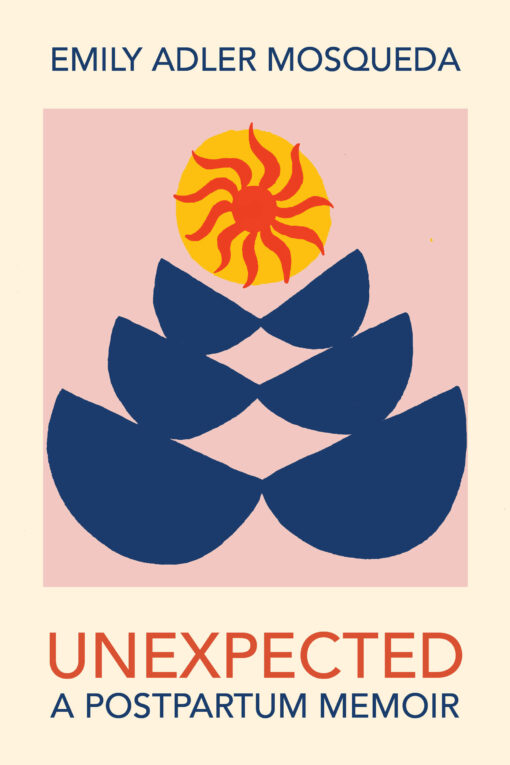In Unexpected: A Postpartum Memoir, Emily Adler Mosqueda, a bilingual pediatric speech-language pathologist, mother of two, and wife of acupuncturist Luke Adler, writes candidly about her harrowing battle with postpartum depression. Climbing out of its devastating grip takes thoughtful reevaluation of all she’s been through as well as tremendous effort to make lasting life changes that will inevitably save her and the relationships she most endears.
As she looks back into her childhood and the depths of her own psyche, Emily unveils some of the precursors of what’s to follow. Achievement and success are virtues her parents hold in high regard during her youth. Her perfectionist tendencies and intrinsic desire to please result in feelings of inadequacy and fear. By the time she’s a junior in high school, she plummets into despair. With great effort, she’s able to regain her footage and enjoy relative wellness throughout her mid-twenties. Her first little one is born six years into marriage. The tides turn in delicate rhythms until her pregnancy with her second child. Irritability, despair, and rage denigrate her days and color years of her and her family’s life with dark hues. However, her husband’s love, support, and loyalty are unwavering. With help from naturopathic specialists and remedies as well as her participation in workshops, psychotherapy, and more, Emily achieves stability and contentment and even begins to offer a helping hand to others in need.
This is an eye-opening account and one that’s likely to resonate with those who’ve struggled with postpartum depression. The author’s poignant descriptions, masterful use of imagery, and steadfast veracity in telling her story shed light on this affliction that’s plagued millions across generations and national divides. The life-altering effects of it are profoundly disabling.
Mosqueda’s insightful reflections illuminate long-held beliefs and biases that are common among many. Her sense of humility is palpable and her determination unrelenting. She journals and self-monitors in an attempt to uncover the mysteries behind her ailments. Accordingly, she notes: “Once the crying meltdowns happened more than a few times, we noticed a pattern. This whole scenario repeated itself every six weeks until April when I was eight months postpartum.” She later comments: “At first, the meltdowns seemed related to my impending menstrual cycle. What originally seemed like an extra bad day, with instances of raising my voice to a yell and slamming doors, repeated weekly. And I had begun to notice an additional symptom: skin-crawling irritability with a dollop of rage.” Her self-awareness assists her in making vital connections. Such extrapolations as well as the book in its entirety may propel readers to search for a deeper understanding of their own adversities and challenges.


